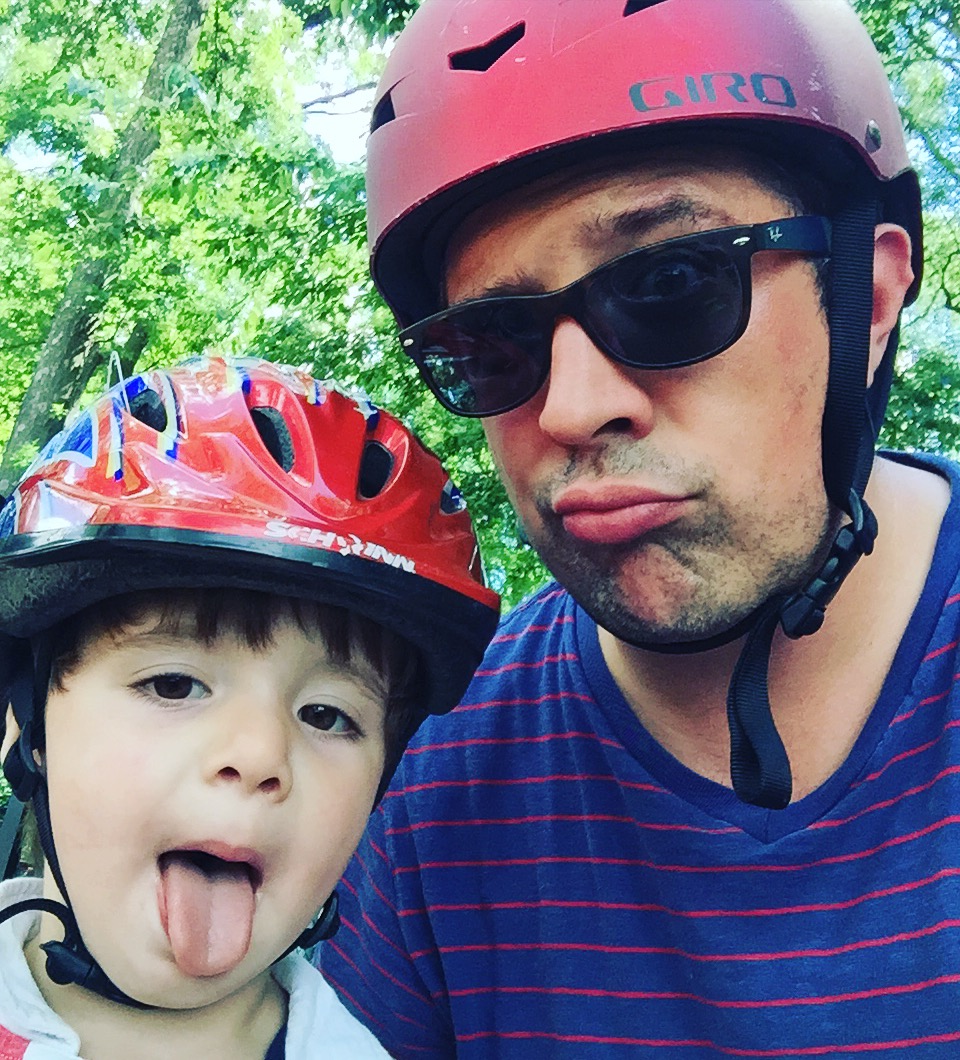 This summer I want to revisit my Be more, teach less philosophy. Summer is often a good time to be more laid back when school work is not looming. It’s time to simply BE with your children.
This summer I want to revisit my Be more, teach less philosophy. Summer is often a good time to be more laid back when school work is not looming. It’s time to simply BE with your children.
Think of a favorite memory you have of a happy time with one of your parents. One that you have never forgotten, one that warms your heart. Was it a moment when your parent was teaching you something? I doubt it. My guess is that it was a time when you were just being together doing something fun or feeling loved and accepted by your parent—maybe you were being silly and laughing hard (that’s my memory).
Spend time this summer focused on being and not doing—on making some of those memories with your kids. Doing things together is great. What I mean is just being with instead of doing to your child. Even if your child is doing something she shouldn’t be doing. Trust her to know that she made a mistake instead of harping on her with your corrections or criticisms.
I know what you’re thinking: How can I leave something bad alone—like hitting? How will he learn if I don’t give him a consequence? She has to know that it’s not okay.
I get it. It’s a risk I am suggesting you take. Think of it as an experiment. Give it at least a month. If it’s something you fear needs teaching, simply say, “I know you know that was not okay. I trust that you are working on getting control over that.” And leave it there.
Children resist with all their might when they think we are against them—when we criticize, blame, threaten, lecture—when they don’t trust that we understand and accept them. To find their way, they need to trust us to trust them. We parent by the misconception that our job is to teach our children how to perform in the world, and if they don’t do it right (according to whom?), then they must be forced with some kind of manipulative, punitive tactic to get them on track. What track? Whose track? What if your child is meant to establish a new track or a track you don’t approve of? What if it’s a track that public schools don’t teach? What if it’s a developmental track that maturity will take care of?
Of course there is unacceptable behavior that must change. Do you think your child doesn’t know that? Unacceptable behavior is far more prevalent when the child is reacting to and resisting being treated unfairly and disrespectfully. That unacceptable behavior is due to something that needs tending, not teaching.
What children need from us is our guidance and leadership. They need us to keep them safe, set the rules, and make the decisions they cannot be expected to make. They should never be expected to act like a grown-up, to know better, to understand tooth decay, to want to do their homework or go to bed, to hurry up and get out the door in the morning. We must trust that they want to be successful, that they want to please us, the most important people in their lives. They want to learn; they want to find their paths. It’s when we get in their way with our own agendas, our critical tones, and our disapproving eyes that they come to the conclusion that the most important people in their lives can’t be trusted—so they look to their peers.
Guidance and leadership does not mean engaging in power struggles to prove our rightness and put down their arguments. It does not mean punishing them, taking away their favorite things, isolating or grounding them—making them feel miserable and thinking that will motivate them to do better. Our intentions are well placed; the methods we traditionally use to motivate are misguided and wrong. They send our children right down the track we most fear. They leave our children floundering in a world of unpredictability, distrusting that we will be there to listen when they face problems.
Practice being; practice trusting. Start by simply listening and truly hearing what your kids are trying to tell you, even and especially when you don’t like the noise they are making. And let me know how your experiment goes. It would be great to have some stories (positive and negative) to share here.
You might also like Building Defensive Behavior One Brick at a Time







